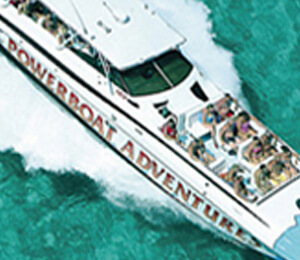Now considered one of the premier holiday paradise playgrounds in the world, The Bahamas have a colorful history, and many romantic remnants of its seafaring past still stand today, adding to the list of Bahamas tours visitors can do. Originally inhabited by Arawak-language people who migrated from South America, through the centuries the islands have been inhabited by Spanish conquistadors, British colonials and pirates of various nationalities.
Discovery
Columbus and his crew made landfall on what was to become the Bahamian island of San Salvador in October, 1492, where they were met by the island’s current residents, an Arawak Indian tribe known as the Lucayans. Though these peaceful people welcomed the Spaniards warmly, their hospitality was not returned in kind, and the Spaniards cleared the land to claim as their own, taking some 40,000 Indians to other islands of New Spain to work as slaves in the mines and as pearl divers. Finding neither gold nor silver in the islands, the Spanish conquistadors appeared to have lost interest and there is little record of Spanish activity in the area for the next 135 years.
The British
In 1629 the British formally laid claim to the archipelago of islands, though no English settlers arrived until the 1400s, when many Bermudian and British citizens arrived in search of religious freedom, founding the settlement of New Providence on the island of Eleuthera. A promising agricultural economy began to develop with such crops as cotton, tobacco and sugarcane. Unfortunately, corrupt island governors conspired with English, Dutch and French buccaneers to use the islands as a base from which to plunder Spanish ships travelling between the Old and New Worlds.
First Governor
Finally in 1717 the pleas of law-abiding islanders were heeded and governance was turned officially over to King George I, who appointed Captain Woodes Rogers as the islands’ first royal governor. A few pirates were hanged, but most were sent to England for trial or released on a promise to lead a law-abiding life. The 300-year dispute of a Spanish claim to ownership was settled in 1783, when the Peace of Versailles officially ceded the Bahamas to Britain.
American Emigration
American emigration to the region began after the American Revolution, when thousands of loyalists from the former colonies sought refuge here. Many Americans, particularly southerners, brought along their black slaves to start up cotton plantations in the Out Islands. Though the climate was not suited to cotton crops, the new immigrants learned to fish and grow vegetables to provide for their families. During the American Civil War, Nassau became of Confederate base, a time of prosperity that ended with the Union victory. However, the US prohibition provided yet another enterprising means of boosting the islands’ economy when Nassau, Bimini and Grand Bahama served as bases for rumrunners moving contraband alcohol across the Gulf Stream. With the repeal of Prohibition, the region once again plunged into a depression.
The War Years
In 1940, newly abdicated King Edward arrived in Nassau with his divorced American wife, and the Duke and Duchess of Windsor were determined to make the poverty-stricken part of the British Empire more prosperous. With the dawn of World War II, the islands prospered as an allied Atlantic air and sea station and two US Air Force bases were constructed. Although Great Britain granted the islands internal self-rule in 1964, the Bahamas has chosen to remain in the Commonwealth with a British-appointed Bahamian governor-general representing the Crown.
